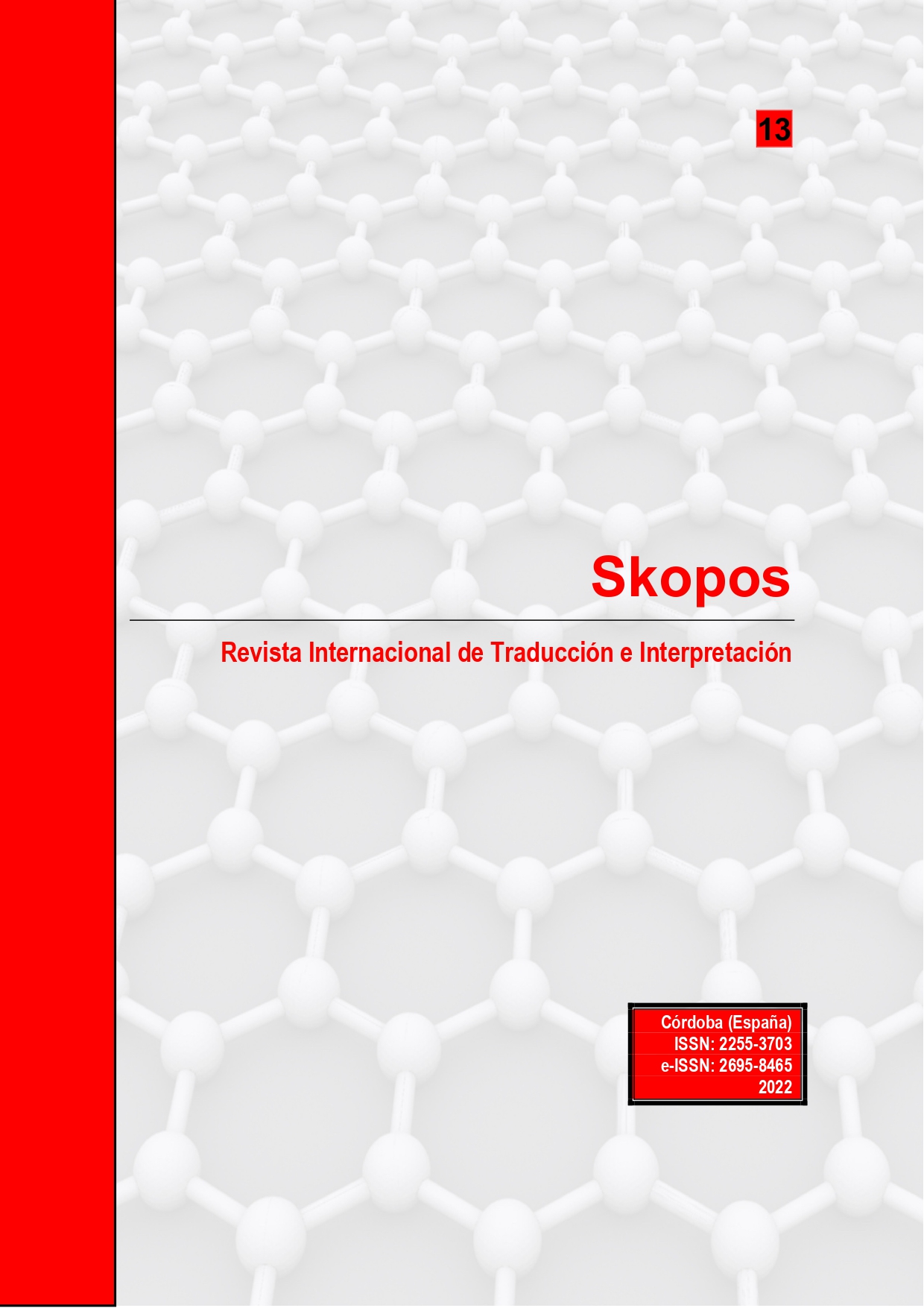español
DOI:
https://doi.org/10.21071/skopos.v13i.15319Abstract
This paper explores the characteristics of metacognitive experiences and manifestations of distress in trainee interpreters in relation to an interpreting task in order to provide a source of information and reference to theory for the didactics of interpreting, which allows understanding the connections between the variables from an academic, metacognitive, and psychological perspective.
For this purpose, research was conducted under a mixed approach, using three data collection instruments: Rivera's Stress Reactivity Index (IRE-32), which allows the identification of negative stress reactors (distress) immediately after the interpretation task and their relationship with metacognitive experiences. The Horowitz Impact of Event Scale, which allows identifying and characterizing internal factors related to the posttraumatic stress response as well as different aspects of the metacognitive experiences, and the semi structured interview, which provides information related to the stressors during the interpretation task, allowing it to be related to the exercise and the previous knowledge learned.
It was found that students show negative reactivity to stress, in this case referred to as distress, in results such as: frustration, confusion, anxiety, lack of concentration, among others; and in reference to the expectations in their metacognitive experiences, they also stated that they felt overwhelmed in relation to their ability to recognize their aptitudes, skills and knowledge to perform the interpretation exercise adequately.
Key words: distress, eustress, interpretation, metacognitive experiences.
Downloads
Published
How to Cite
Issue
Section
License
Política propuesta para revistas que ofrecen acceso abierto. Aquellos autores/as que tengan publicaciones con esta revista, aceptan los términos siguientes:
- Los autores/as conservarán sus derechos de autor y garantizarán a la revista el derecho de primera publicación de su obra, el cuál estará simultáneamente sujeto a la Licencia de reconocimiento de Creative Commons que permite a terceros compartir la obra siempre que se indique su autor y su primera publicación esta revista.
- Los autores/as podrán adoptar otros acuerdos de licencia no exclusiva de distribución de la versión de la obra publicada (p. ej.: depositarla en un archivo telemático institucional o publicarla en un volumen monográfico) siempre que se indique la publicación inicial en esta revista.
- Se permite y recomienda a los autores/as difundir su obra a través de Internet (p. ej.: en archivos telemáticos institucionales o en su página web) antes y durante el proceso de envío, lo cual puede producir intercambios interesantes y aumentar las citas de la obra publicada. (Véase El efecto del acceso abierto).






